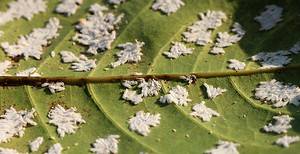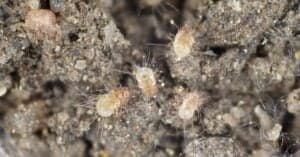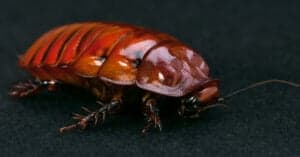Household pests vary from one species to another with different characteristics. Surprisingly, when they are talked about, people wrap their minds around flies, spiders, bed bugs, ants, wasps, termites but fail to take cognizance of stink bugs courtesy of their seasonal appearance.
Stink bugs are invasive, tiny shield-shaped insects that emit a powerful deterrent smell when they feel unsafe or disturbed. They belong to the order Hemiptera and have small glands on their thorax capable of emitting these offensive odors. Stink bugs are of different species worldwide, with Brown Marmorated stink bugs standing as the most dominant species in the United States. They are seasonal pests that tend to infest homes from late summer to early autumn.
In this article, we’ll discover if stink bugs are in any way dangerous to humans, pets, or properties.
Do Stink Bugs Bite?
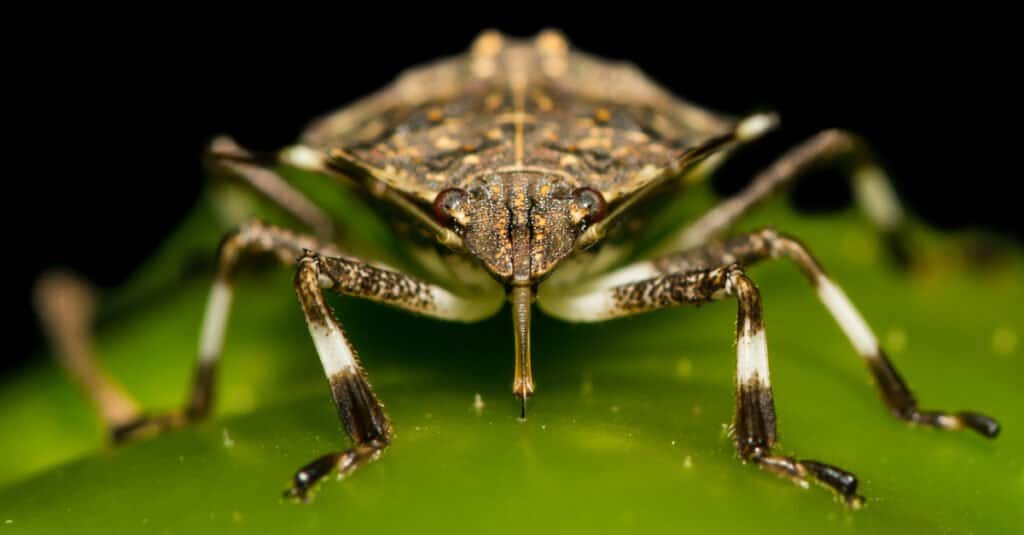
Stink bugs rarely bite.
©Jay Ondreicka/Shutterstock.com
Many people wonder if stink bugs bite. Anyway, here is the undenying fact – stink bugs mostly do not bite. Although it is improbable that these bugs bite humans; nevertheless, it is not beyond the realm of possibilities if they are handled in such a threatening manner. However, they cause allergic reactions to people when they release certain compounds from their body system.
What more? These household pests prefer to eat vegetables and fruits. Interestingly, they pierce the skins of fruits and vegetables with their mouths to get most of the juicy abstracts.
Stink bugs are relatively defenseless and would not stand any chance against humans. So when they feel threatened, their primary defense mechanism is emitting a foul stink odor.
Stink bugs do not take pleasure in what mammals eat. They do not suck blood or feed on humans or other animals. Most species of these creepy insects feed on vegetation. They quite enjoy sucking the juice from stems, leaves, and roots of vegetation and are intriguingly not picky about assaulting the whole vegetation and even weeds.
Are Stink Bugs Dangerous to Humans?
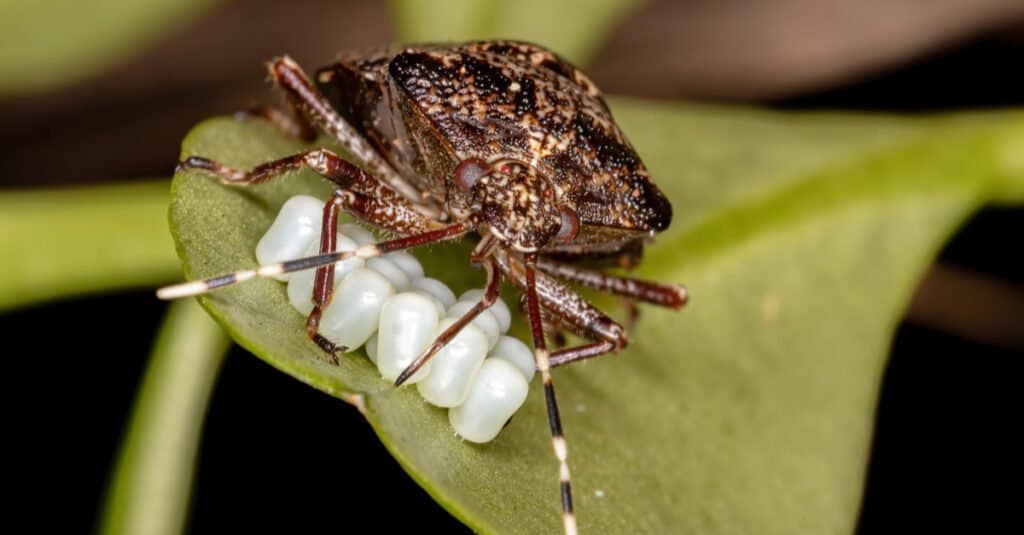
Although some people are allergic to the compounds released by stink bugs, they are generally not dangerous to humans.
©Vinicius R. Souza/Shutterstock.com
Stink bugs have had most people wondering if they pose any threat or danger to humans for their irritating smell. The simple answer to this is NO! Stink bugs do not pose any known threat and are in no way dangerous to humans. These foul-smelling little pests rarely bite humans and are not known to carry or infect pathogens/harmful bacteria.
That said, one should not undermine the strong effect of their distinctively unpleasant odor. The irritating smell sometimes can cause stomach disorders for some people, but the fact remains that they aren’t dangerous insects and are not carriers of pathogens.
Are Stink Bugs Dangerous to Pets?
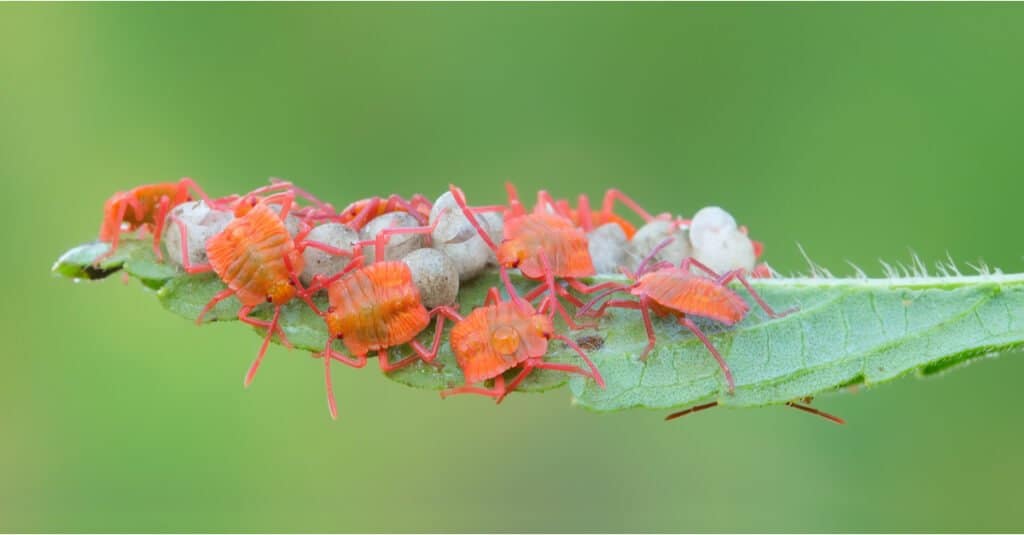
Pets may vomit and drool after consuming stink bugs.
©Lee Hua Ming/Shutterstock.com
It is no surprise that at least one person out of every five individuals in the United States owns a pet. By default, it is only fair that we talked about these little pets’ fate when stink bugs invade homes or surrounding environments.
Interestingly, we sighed relief having found out that these household pests aren’t, after all, dangerous to humans. But on second thought, what would one say about the dangers they pose to other household pets like dogs, cats, and hamsters?
Dogs and cats naturally love chasing insects for fun or food. But not to worry; there are no harmful side effects when pets swallow these bugs aside from vomiting or drooling. Nevertheless, pets should stay entirely away from these pests.
Are Stink Bugs Dangerous to Property?
Aside from the fact that these bugs could put you to work domestically, they are not a threat to your properties. They would only put you through the stress of cleaning sofas, curtain stains, carpets, and other fabrics, which, to be honest, could be quite annoyingly irritating.
How to Get Rid of Stink Bugs
Removing stink bugs can seem difficult to deal with because they are found within and without household properties. However, there are ways to get rid of them without hassles:
- Employ the assistance of highly trained pest control specialists for a thorough inspection of the property – their expertise interestingly provides bespoke solutions to getting rid of these foul-smelling insects.
- The surrounding environment should be sparkly clean at all times.
- Seal off entry points.
- Get the garden acquainted with trap plants.
- Make use of natural repellants.
- Get acquainted with traps in and around the home.
Can I Get Rid of Stink Bugs Myself?
Besides employing the help of professionals and highly trained pest control agents, you could take some measures to prevent or minimize the population of these annoying little pests within your home. To get rid of stink bugs in your home, you must first know and identify how/where they come in and the cause of intrusion indoors and outdoors.
Stink bugs typically make their way into homes through cracks and crevices around chimneys, windows, door panels, mounted air conditioners, exhaust fans, ceilings, etc. They enter homes and other structures in the wall, searching for a suitable place to hold up during winter.
To eradicate these bugs and free your house and yard from the stinking smell, you should do the following:
- Seal off every possible opening around the windows and doors that grants them easy entry.
- Since these stinky household pests love feasting on weeds and vegetation, one may consider maintaining a well-trimmed garden at all times.
- Keeping outdoor lights off, or, to a minimum, is a great way to keep stink bugs at bay because they are attracted to light.
- Be sure to remove all debris and edible vegetation from your home’s foundation.
The photo featured at the top of this post is © Vinicius R. Souza/Shutterstock.com
Thank you for reading! Have some feedback for us? Contact the AZ Animals editorial team.



